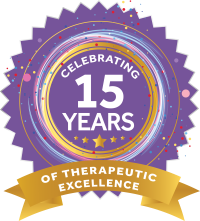 Over the last several years, there has been a significant decline in speech language pathologists (SLPs) and school psychologists, specifically, entering the education field. And because of this, many students who need those specific services are the ones who are most affected. If qualified individuals are not hired, or untrained staff fills those voids, students’ needs are not met.
Over the last several years, there has been a significant decline in speech language pathologists (SLPs) and school psychologists, specifically, entering the education field. And because of this, many students who need those specific services are the ones who are most affected. If qualified individuals are not hired, or untrained staff fills those voids, students’ needs are not met.
Speech-Language Pathologists
The shortage of SLPs is affecting schools all over the U.S. and could be attributed to the limited number of graduate program openings and increased need as job requirements grow, the increase in autism diagnoses, and the current population of SLPs retiring or resigning. While most SLPs who work in a school setting like the schedule and the student population they work with, studies have found that many are leaving education because of their increasing workload, lack of resources, low pay, no room for growth or promotions, no recognition, and most notably, growing caseload size.According to the American Speech and Hearing Association (ASHA), SLPs evaluate and treat communication disorders and swallowing in the following areas: speech sound production, resonance, voice, fluency, language, cognition, and feeding and swallowing. During the school year, one SLP often must treat many of these conditions in one student while at the same time working with several students in a group who also might need services for multiple conditions. Furthermore, school SLPs usually work with children who have autism spectrum disorder. According to the CDC website, a recent report stated that one in 54 children in the U.S. have autism. All of these factors can increase a caseload for a single SLP which in turn can cause burnout.
School Psychologists
In addition to the critical shortage of SLPs, there also is a shortage of school psychologists. Not only with practitioners, but with available graduate programs and the faculty needed to teach those programs. According to the National Association of School Psychologists (NASP), consequences of the shortages include unmanageable caseloads, inability to provide prevention and early intervention services or regularly consult with families and teachers, reduced access to mental and behavioral health services for students, and limited scope of service delivery focused primarily on legally mandated special education practice.While school psychologists are trained to address students with mental health needs, can lead social-emotional learning groups, and consult with principals, teachers and parents about behavioral and learning challenges, their main priority is to assess students for learning disabilities and ensure schools are in compliance with special education laws. If a district or school only has a limited number of employed school psychologists, then they need to focus solely on supporting students with disabilities.
Possible Solutions
Although most of this isn’t news to many in the education industry, these shortages – of SLPs, school psychologists, counselors, mental health professionals – can threaten the high quality of services students, families, and communities deserve.At E-Therapy, we understand there aren’t enough school psychologists and SLPs to fill the many open positions at so many schools across the country. And while we can’t combat the shortages, we can help schools meet the needs of students so they are not suffering because of these vacancies. Our school psychologists are able to complete psychoeducational assessments. Our therapists serve and work with multicultural student populations in urban and rural areas that otherwise would not receive adequate and necessary therapy services for students in grades preK-12.We have more than 500 highly-qualified therapists (speech, physical and occupational) who have an estimated 700,000 plus hours of combined therapy experience, and all therapists are State and Nationally Certified with the American Speech and Hearing Association (ASHA), American Occupational Therapy Association (AOTA), or the American Physical Therapy Association (APTA). Our therapists are certified, credentialed, and/or licensed as required by state regulations and standards. Also, our therapists will comply with current state requirements for certification and licensure in the appropriate areas and are able to comply with any changes the state may make. In addition, we employ mental health therapists, clinical social workers, licensed professional counselors, and licensed school psychologists. We ensure that all licenses and documentation are up to date.
Mental Health Toll
It has been two years since the pandemic flipped the world upside down. Two years since educators and students had a “normal” school year. While many schools and districts are finding their way back to “normal,” those who stayed committed to “showing up” every day, the therapists, counselors, social workers, school psychologists, teachers, administrators, support staff and more are tired. They are burned out. Students are burned out too. With anxiety and depression rates at an all-time high with many Gen Z students, what can be done to help them in this post-pandemic world? With educators and students dealing with emotional crises daily, it is draining.In addition to our related services and to combat the rising demand to address mental health needs, we recently introduced our eWELLNESS program. We developed a comprehensive mental health program to target the overall wellness needs of the entire school community. We can provide direct, indirect, and consult services to fragile youth through the assistance of a facilitator. Our therapy programs are tailored to fit each individual school depending on its needs. Our program addresses all tiers of student support, provides therapy services for students and staff, includes a quick and easy 48-hour referral system, and is equipped with a student tracking and reporting platform. Our highly-qualified therapists, in addition to mental health counselors, are hired and trained to customize services to truly engage students on every level to ensure their success.And because K-12 school administrators, educators and staff often overlook their own well-being, E-Therapy initiated an “educator wellness series” of interactive group sessions for teachers, school counselors, social workers and administrators on a wide range of topics to help them handle emotional stress.
Recruitment
We take a proactive approach to recruiting therapists. The rigorous interview and hiring process allows us to recruit only the most qualified and experienced therapists. Our human resources department constantly seeks out new talent and cultivates new exceptional therapists to join our team. In addition to ensuring all therapists are industry credentialed as appropriate, we also ensure they meet all legal background checks and tests required.Furthermore, we provide bilingual services to schools all over the nation. We work with diverse populations throughout many areas where English is the second language for many students. Founder Diana Parafiniuk is a bilingual SLP and is dedicated to providing excellent bilingual services to students in need. Currently we employ several bilingual therapists and have seen great results in bilingual students’ IEP goals.
Tracking of Services
Data tracking and reporting are essential in every special education program. We have developed a comprehensive tracking system, STAR (Student Tracking and Reporting System), that allows districts to track its students’ progress in real time and monitor their progress towards their IEP goals. This ensures school staff always is up-to-date with each student’s session data. STAR allows staff to refer students easily, provides a transparent experience to monitor services, and allows quick access to current billing/invoice information. STAR also helps inform methodology decisions. Each activity used by a therapist is chosen specifically to motivate and engage the student to best reach his or her goals. We also provide progress reports as requested by the school district. STAR allows school staff to not only see past information and all the data analytics behind it (sessions provided, notes, documents, etc.) but also allows staff to see all the future scheduled sessions.
Online Therapy Platform
Our system is optimized for the highest quality video connection where the therapist and student see and hear each other throughout the entire session from their computers. The video communication is powered by one of our partners, a leading video broadband provider, and we have customized the solution to best support the therapist and student video experience. Furthermore, we have plug n’ play activities therapists can use with students that are customizable in real-time. The therapist also is able to share digital activities with the student and even give the student control of the mouse or keyboard as needed to engage in interactive experiences to enhance the therapy experience.STAR works on all school MACs, tablets, smartphones, and it works on legacy computers so that school districts are not obligated to buy new hardware in order to receive therapy services.If a school has in-house therapists but not a way to deliver services online, E-Therapy’s eSMART platform is the most resourceful, online, teletherapy management platform to ensure top-level support for a student services team. School-based teams are trained to get virtual sessions up and running with zero frustration.
Reach Out
E-Therapy conforms to all HIPAA, FERPA, and industry standards. Our therapists are required to obtain continuing education credits and keep up-to-date on current telepractice skills and activities. Contact one of our representatives today to get more information about our services.
Want to learn more?
Click below to schedule a chat with us today: https://bit.ly/3s0GcQR
